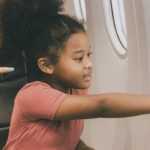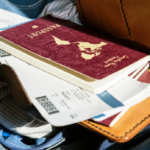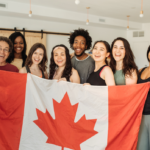The Future of Immigration: Trends and Predictions
Cultural celebrations offer a unique window into the rich traditions, histories, and values of various communities around the globe. They are vibrant expressions of identity and heritage, fostering understanding and unity among people from diverse backgrounds. Embracing these celebrations within your community can enhance social cohesion, promote mutual respect, and enrich everyone’s lives. In this blog, we will explore several cultural celebrations from different parts of the world and how you can incorporate them into your community.
1. Chinese New Year
Origins and Traditions:
Chinese New Year, also known as the Spring Festival, is one of the most important holidays in China and other East Asian countries. Celebrated at the turn of the lunar calendar, it involves family reunions, feasts, fireworks, and various traditional customs.
How to Celebrate in Your Community:
- Host a Lantern Festival: Organize a lantern-making workshop and a lantern parade to symbolize the light and warmth of the coming year.
- Culinary Experience: Arrange a community potluck featuring traditional Chinese dishes such as dumplings, spring rolls, and tangyuan (sweet rice balls).
- Cultural Performances: Invite local dance groups to perform the dragon or lion dance, and consider having a demonstration of martial arts or traditional music.
2. Diwali
Origins and Traditions:
Diwali, the Hindu Festival of Lights, signifies the victory of light over darkness and good over evil. It involves lighting oil lamps, bursting fireworks, exchanging sweets, and performing religious rituals.
How to Celebrate in Your Community:
- Lighting Ceremony: Encourage community members to light oil lamps or candles around their homes and public spaces.
- Art and Craft Workshops: Organize rangoli (colorful floor patterns) making sessions, where participants can create beautiful designs using colored powders, rice, or flowers.
- Cultural Exchange: Hold a storytelling session or a seminar on the significance of Diwali, accompanied by traditional dance and music performances.
3. Carnival
Origins and Traditions:
Carnival is celebrated in many countries, with Brazil’s Rio Carnival being the most famous. It precedes Lent and is characterized by vibrant parades, elaborate costumes, music, and dancing.
How to Celebrate in Your Community:
- Parade: Organize a local parade with colorful costumes, floats, and music. Encourage participation from different cultural groups to showcase their own traditions.
- Dance Workshops: Offer samba, salsa, or other dance workshops to teach community members the traditional dances associated with Carnival.
- Food Fair: Set up stalls featuring traditional Carnival foods from various countries, such as Brazilian feijoada, Trinidadian roti, and Italian fritole.
4. Ramadan and Eid al-Fitr
Origins and Traditions:
Ramadan is a holy month of fasting, prayer, and reflection observed by Muslims worldwide. It culminates in the celebration of Eid al-Fitr, marked by feasting, giving charity, and communal prayers.
How to Celebrate in Your Community:
- Iftar Gatherings: Host community iftar (breaking of the fast) dinners where people can come together to share meals and learn about Ramadan.
- Charity Drives: Organize charity events or food drives to help those in need, reflecting the spirit of giving that is central to Ramadan and Eid al-Fitr.
- Cultural Presentations: Arrange talks or presentations on the significance of Ramadan and Eid al-Fitr, highlighting the diverse ways they are celebrated around the world.
5. Hanukkah
Origins and Traditions:
Hanukkah, the Jewish Festival of Lights, commemorates the rededication of the Second Temple in Jerusalem. It is celebrated by lighting the menorah, playing dreidel, and eating foods fried in oil.
How to Celebrate in Your Community:
- Menorah Lighting: Organize a public menorah lighting ceremony, inviting community members to participate.
- Cooking Classes: Offer classes on how to make traditional Hanukkah foods like latkes (potato pancakes) and sufganiyot (jelly-filled donuts).
- Cultural Education: Host educational sessions about the history and traditions of Hanukkah, including games and activities for children.
6. Día de los Muertos
Origins and Traditions:
Día de los Muertos, or Day of the Dead, is a Mexican holiday that honors deceased loved ones. It involves creating altars with offerings, decorating graves, and celebrating with food and music.
How to Celebrate in Your Community:
- Altar Building: Set up a communal altar where people can place photos and offerings to honor their loved ones.
- Art Workshops: Organize workshops to create traditional crafts like sugar skulls and papel picado (cut paper decorations).
- Parades and Festivals: Hold a parade or festival featuring traditional music, dance, and food, celebrating the lives of those who have passed away.
7. Holi
Origins and Traditions:
Holi, the Hindu festival of colors, celebrates the arrival of spring and the victory of good over evil. It is known for the playful throwing of colored powders and water.
How to Celebrate in Your Community:
- Color Throwing Event: Host an outdoor event where participants can throw colored powders at each other in a joyful celebration.
- Music and Dance: Arrange for traditional Indian music and dance performances to enhance the festive atmosphere.
- Cultural Talks: Provide educational sessions on the significance of Holi and its customs, along with storytelling sessions about the legends associated with the festival.
8. Oktoberfest
Origins and Traditions:
Oktoberfest is a German festival known for its beer, traditional foods, and folk music. It originated in Munich and is now celebrated worldwide.
How to Celebrate in Your Community:
- Beer Tasting: Organize a beer tasting event featuring local breweries and traditional German beers.
- Food Fest: Offer traditional German foods like pretzels, sausages, and sauerkraut.
- Music and Dance: Hire a band to play traditional Bavarian music and invite community members to join in folk dances.
9. Lunar New Year
Origins and Traditions:
Lunar New Year is celebrated in many East Asian countries and marks the beginning of the lunar calendar. It involves family gatherings, feasts, and traditional rituals to bring good luck.
How to Celebrate in Your Community:
- Cultural Exhibits: Set up exhibits showcasing the customs and traditions of Lunar New Year celebrations from different countries.
- Workshops: Offer workshops on traditional crafts like calligraphy and paper cutting.
- Community Dinner: Host a community dinner with traditional dishes such as dumplings, sticky rice cakes, and fish.
10. Nowruz
Origins and Traditions:
Nowruz, the Persian New Year, marks the first day of spring and is celebrated by various communities in the Middle East and Central Asia. It involves house cleaning, visiting friends and family, and feasting.
How to Celebrate in Your Community:
- Spring Cleaning Drive: Organize a community-wide spring cleaning event to symbolize a fresh start.
- Cultural Fair: Host a fair with traditional Nowruz foods, music, and dance performances.
- Educational Sessions: Provide talks on the history and customs of Nowruz, highlighting its significance across different cultures.













